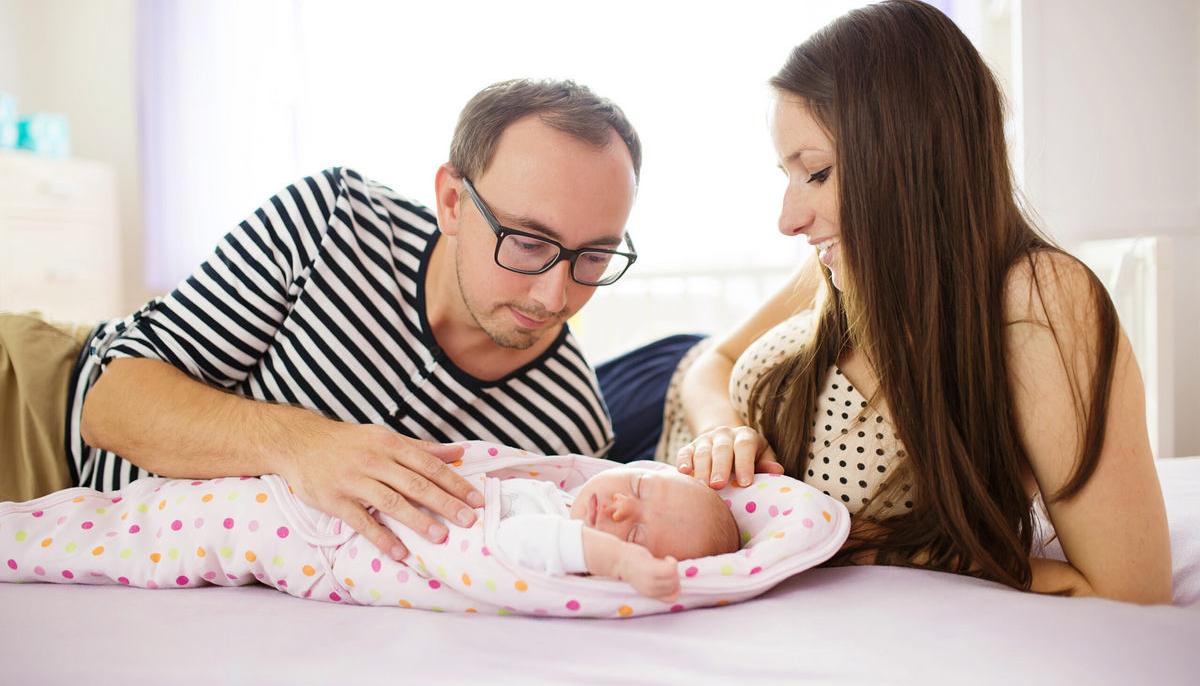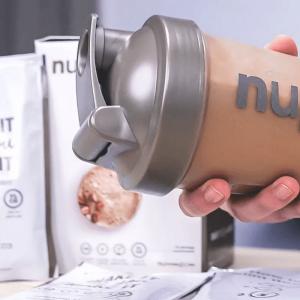To begin with, let's clarify the doubt and confusion of the parents who wonder, with good reason, why today they find out in the maternity hospital that the safe sleeping position for the newborn is on the back, while the child's grandmother urges him to sleep on his stomach, so as the doctor told her in the past, and as she raised her children.
Medical practices and recommendations are directly influenced and shaped by the research, studies, available at a given time. National and international medical protocols and clinical guidelines are constantly updated, based on the latest studies and scientific research in the medical field.
Does non-stop breastfeeding harm the newborn?
Prolonged breastfeeding does not harm newborns and babies, but it is good for them to have a schedule. Program not in the strict or absolute sense of the word, but rather, to consider a cyclicity. The newborn must be breastfed, then the stomach must digest the milk, rest, then resume this cycle.
If the mother offers the breast continuously, when the newborn sits at the breast, even though he is not actively sucking, a little milk still ends up in the stomach. Ingesting milk continuously, even in small quantities, also involves the digestive component, the stomach being thus intensely requested.
It is also worth mentioning that - the composition of breast milk differs depending on the moment of sucking. In the beginning, mother's milk is watery and has a high lactose content, it quenches the child's thirst, so that later it becomes full. The satiety of breast milk is given by the fats in the depth of the gland, so that as the breast empties, the newborn will receive fatter milk, which will saturate him, giving the feeling of satiety.
At the same time, the perpetuation of the cult makes him cry - he is hungry, it does not help. The child can also cry for other reasons, he can cry because his stomach hurts, maybe it's too hot, he can have his clothes tightened, he cries because he has a numb hand, because yes, they can also numb their limbs when they sit in an incorrect position or in the same position for a longer time.
How do we know that it is necessary to offer extra milk powder? About physiological weight loss
The first sign that supplementing with powdered milk is needed is that the newborn does not "grow" as it should, does not gain weight. Normally, newborns have a physiological decrease in weight in the first two, three days after birth.
Why does the physiological weight loss occur after birth ? There are more losses than food intake, given that the food intake is limited by the reduced gastric capacity of the newborn.
The very small gastric capacity does not allow overfeeding to compensate for losses by:
- elimination of urine and faeces
- insensible losses at the level of the skin - the skin has a very large surface, and at its level a lot of fluids are lost.
- liquids are also lost through breathing.
Taking into account the losses and the gastric capacity of the newborn, it is obvious that a balance cannot be reached, therefore, the newborn has this natural decrease in weight which is not a cause for concern.
After three or four days, gradually, the gastric capacity of the newborn increases, usually by about 10 ml per day, during which the mother's lactation is established in a sufficient amount, and the newborn begins to gain weight. When the newborn does not gain weight, and does not manage to recover its birth weight in approx. two weeks, this is a sign that the infant is not fed enough. Either there is hypogalactia - an insufficient milk secretion of the mother, or the child does not suck properly, or does not have the strength to suck, does not suck sustained, the causes are multiple.
Other situations in which supplementation with powdered milk is recommended would be: intense jaundice, delay in establishing lactation, newborn dehydration, neonatal hypoglycemia. The risk categories for the occurrence of hypoglycemia include macrosomic children (high birth weight), children of mothers with diabetes, children who did not grow enough in the womb - with intrauterine growth retardation.
What happens in case of hypoglycemia in a newborn? Depending on the blood sugar level, either try to correct it with food by supplementing with formula, or resort to infusion.
In the case of severe jaundice, by hydrating the child, the level of bilirubin responsible for the appearance of jaundice decreases. Any dehydrated person concentrates blood components, including this bilirubin. Bilirubin is eliminated through biological products, if the newborn does not receive enough milk, does not urinate enough, does not have a stool, so it does not cleanse the body of the components it must eliminate, so as to overcome neonatal jaundice.
Is jaundice a worrying problem? Why did he get jaundice?
Jaundice in newborns falls into the category of physiological crises, it is normal for newborns to become jaundiced.
In intrauterine life there are a lot of red blood cells, erythrocytes, due to the fact that the fetus lives in an environment of slight hypoxia, then, after birth, when it is well oxygenated, it no longer needs these transporters in excess, erythrocytes, so they are destroyed in a very large amount, and release bilirubin that causes jaundice - the yellow coloration of the skin and mucous membranes. Jaundice is called physiological precisely because it is normal and because it occurs in most newborns.
How do we know that the newborn sucks effectively? Signs of dehydration in newborns
There are several signs, for example, prolonged meals, which last more than 40 minutes, can be an indication that the newborn is not eating enough. Normally, a child must finish his meal in a quarter of an hour, 20 minutes, a maximum of 40 minutes of breastfeeding would be accepted.
But the main sign that the newborn does not suck effectively is that he has not recovered his birth weight even after 2 weeks of life .
In the first days of the child's life, signs of dehydration appear, concretely, in addition to weight loss, there are other indicators - the appearance of the child with dry mucous membranes and integuments, he does not urinate enough, the urine is concentrated, with a lot of salts. This is, in fact, about those ugly things that mothers are afraid of and say that the baby was born with blood, in fact the "blood" represents the salts filtered in the pampers. Pampers works like a filter paper, through which when the jet passes, it filters and the salts remain on the surface, looking like brick shavings. The reddish spots are essentially the salts in the urine and mean that the baby is probably not consuming enough fluids.
Does the newborn have to eat every 3 hours?
The recommendation is that the baby be breastfed on demand, but, as time goes by, the mother can notice that, in general, the baby will make his "own meal schedule" about every 3 hours.
But let's not forget that for infants, breastfeeding means covering the need for hunger and thirst, both. Do not confuse thirst with hunger. The child who eats from hunger, eats well, eats from both breasts, and that is a hungry suck. Between two hunger feeds, generally around 2 hours, 2 and a half hours, 3 hours, even 4 hours, it depends on how much he ate before, if he is still thirsty, he may show signs that he would like to be breastfed, that is the sucking of thirst, being very short in duration.
It is important for new mothers to understand that the newborn eats often, you offer it on demand, but feeding the baby and sucking it all day at the breast are two distinct things. The child must have other "activities", not just standing non-stop at the breast, he must sleep, eliminate the contents of the stomach, that is the previously mentioned cyclicity.
Should the newborn sleep on his back or on his side?
More than 28 years ago, doctors recommended that newborns sleep on their stomachs, then all parents put their children to sleep on their stomachs.
Later, studies revealed that sleeping on the stomach is a risk factor for sudden infant death syndrome and that the sleeping position that prevents this accident is on the back. The child sleeps on a hard, upright, well-sanitized mattress, with a proper ventilation system, and not with pillows, side protections, thick beds in the face area.
And here a differentiation is necessary, namely - we cannot exclude placing the child on all sides as long as he is supervised by the parents. But unsupervised, we prefer to put it on the back.
Regarding the first month of life, I recommend the side position, but supported, controlled, to avoid the risk of that child who does not know how to turn himself, ending up face down on the surface of the cot/the surface on which he is placed .
The fear of the parents is that sitting in the side position, he will turn himself face down and suffocate, that's why I insist on the controlled side, which involves those supports that do not allow the child to turn over on his stomach. Also, parents must supervise the newborn, either directly by being around him, or indirectly through all kinds of systems used today - video cameras, baby monitors, etc.
When the newborn is supervised, observed by a parent, it is not exposed to risk. Moreover, during waking hours, the position on the stomach is recommended for strengthening and developing the muscles of the back, of the neck area, it is a kind of physical therapy for the little one.
He will strengthen his own muscles through spontaneous movements, because he gets up to look or because he changes the position of his head.
Do you clean your eyes, nose, and mouth daily?
It is only cleaned if necessary. For example, even we adults do not wash our eyes daily, we simply wash our face, something we also do with the infant, we wash his face during the bath.
Also in the bathroom, most of the time the child sneezes, thus also removes the secretions from the nose, thus also cleans the nose. The parent intervenes and cleans the baby's nose only when necessary, farts, farts, sneezes frequently.
The newborn's mouth is not cleaned with glycerin, glycerin dehydrates the mucous membrane and is used in specific cases. Glycerin is used as a vehicle for other substances, for example, in the treatment of mycotic stomatitis, in which case glycerin with nystatin is recommended. Nystatin acts on the fungus, but nystatin powder requires another substance to be suspended in, and that substance is glycerin.
How warm should it be in the house?
Between 20 and 22 degrees. My advice is that in the first two weeks of life it should be even over 22, not 27, but it can reach 24. Specialized literature says that only after 2 months of life, the baby gets to have a similar body temperature control the adult.
Obviously, there are also people who walk in short sleeves at 0 degrees on the street, but normally at 0 degrees they walk with a jacket on the street, they use a scarf to cover their necks. If I'm fine and I feel good in short sleeves at home at 22 degrees, I also dress the child in a thin suit.
Do we wrap the baby to sleep? How and with what?
How do we wrap it? Be very careful with beds, not to pull on their eyes, not to suffocate in beds, pillows and other toys left by parents or older siblings in the infant's bed and who have nothing to look for there.
Thick beds that can occlude the nostrils, the mouth, are dangerous, the little ones can suffocate with them. Knitted beds with mesh, which allow air to pass through, are indicated. Then, the child will wave his hands, he can pull them over his face, the parent must take care to wrap him under the petticoat, so that the blanket does not reach the neck.
How do we properly care for the umbilical stump?
Alcohol is recommended, we also use it in the maternity ward to clean the navel because it is a very good antiseptic. In addition, it has an astringent effect and helps to mummify the abutment. I recommend that after each change of diapers and after bathing, the navel should be cleaned with alcohol, not with iodine, but with betadine. Betadine is a product with iodine, iodine is easily absorbed through the child's skin and in too large quantities is not good.
Attention, toileting refers especially to the detachment groove, the area where the navel will be loosened. That is a wet area, an environment where germs proliferate and require cleaning. The parent must learn where to wipe, not to wipe only the skin and the dry part of the stump, that's not where the germs multiply, but right in that groove, which by wiping, you help it to dry, therefore to heal faster.
What medicines should we have at home?
A shelf of medicines and products of all kinds is not necessary.
- We start with the necessary toilet products, parents need sanitary alcohol, sterile compresses, physiological serum, a nose pump or a nasal probe with which the nose can be cleaned.
- If the child does not have stool - it is good to have suppositories with glycerin, possibly micro enemas which are much gentler and more effective.
- Mandatory thermometer, the child's fever is not established with the back of the palm, with the lips, only with the thermometer.
- Suppositories to lower the fever would be indicated. If the doctor calls in the middle of the night and recommends half a suppository, it is good to have it at home.
Do we give him a bath every night?
From my point of view, yes, it is a moment of relaxation for the child and, at the same time, hydration.
Immersing the child in water hydrates the child's skin, so we don't have to use creams and other lotions, but simply keep the child in the water. It is good to bathe him daily, this way he also acquires healthy habits, so he bathes every evening from a young age. Obviously, if one evening we are extremely tired or the little one seems to be completely unwell, it is not a tragedy if we skip.
I would also like to add that, especially at the newborn's first bath at home, parents are often stressed and tense, unconsciously they can make sudden gestures, and the child feels and will be insecure, hence the crying in the bath. Newborns, infants, react by crying, by agitation, maybe we took him in our arms too quickly, we squeezed him a little because it seemed to us that he was slipping, we immersed him quickly and he suddenly came into contact with the water , I didn't let him get used to it gradually, slowly. These gestures can trigger the Moro reflex, the hugging reflex that ends in crying.
The Moro reflex is a reflex due to the immaturity of the nervous system and once the nervous system matures, it disappears around the age of 4 months.
When do we go out with the newborn?
The first walk of the newborn is the very exit from the maternity ward, when he goes home. Before, limits were circulated - in summer starting from two weeks, in winter from one month, these were the recommendations many years ago.
Today, it is recommended to be taken out whenever the temperature allows (it is not raining, there are no very low temperatures - frost, no bad wind, etc.) and gradually, not 2 hours for the second walk. If the weather does not allow it, for the newborn, airing the room is "a kind of walk" because it comes into contact with the air.
About sleeping outside, especially in the cold season, it is good to know that infants often fall asleep outside in the air, and when they sleep, they do not produce heat because the body produces heat especially when it is in motion, when the little one is agitated , at rest they "cool down" more easily, which is why it is good to take care of the outer clothes, to dress them appropriately, adequately, but not excessively thick because the small child can easily overheat if they are agitated and not can communicate this to us.
Does the baby's bed need protection?
At the beginning of life, the baby's crib does not need protection, it is the period when the parent needs and must see him, observe him, including from his bed, the protections only block the view. The protections can prove useful later in the child's life, when he becomes mobile, to limit possible small traumas. When he sits, when he learns to stand up, he can hit himself, but in the newborn stage, when the parent is the one who turns him from side to side, the protections are useless.
What are the warning signs in the case of newborns and babies?
The time of crying, when the crying is inconsolable, when the color of the integuments changes, when he vomits frequently, refuses food, when he has an unpleasant smell in his mouth, if the urine has an unpleasant smell, if the stool has an unpleasant smell, if its consistency changes, if there is blood in the stool, if the stomach weathers (bloats) more than it should and if there is a fever. Also, if he has abnormal, repetitive movements, moves his eyeballs abnormally or stares at a fixed point, these are some of the signs that should send an alarm signal to the parents.







